
Business
17:29, 10-Nov-2017
A day in the life: The couriers who deliver China’s 'Double 11'
By CGTN's Nick Moore
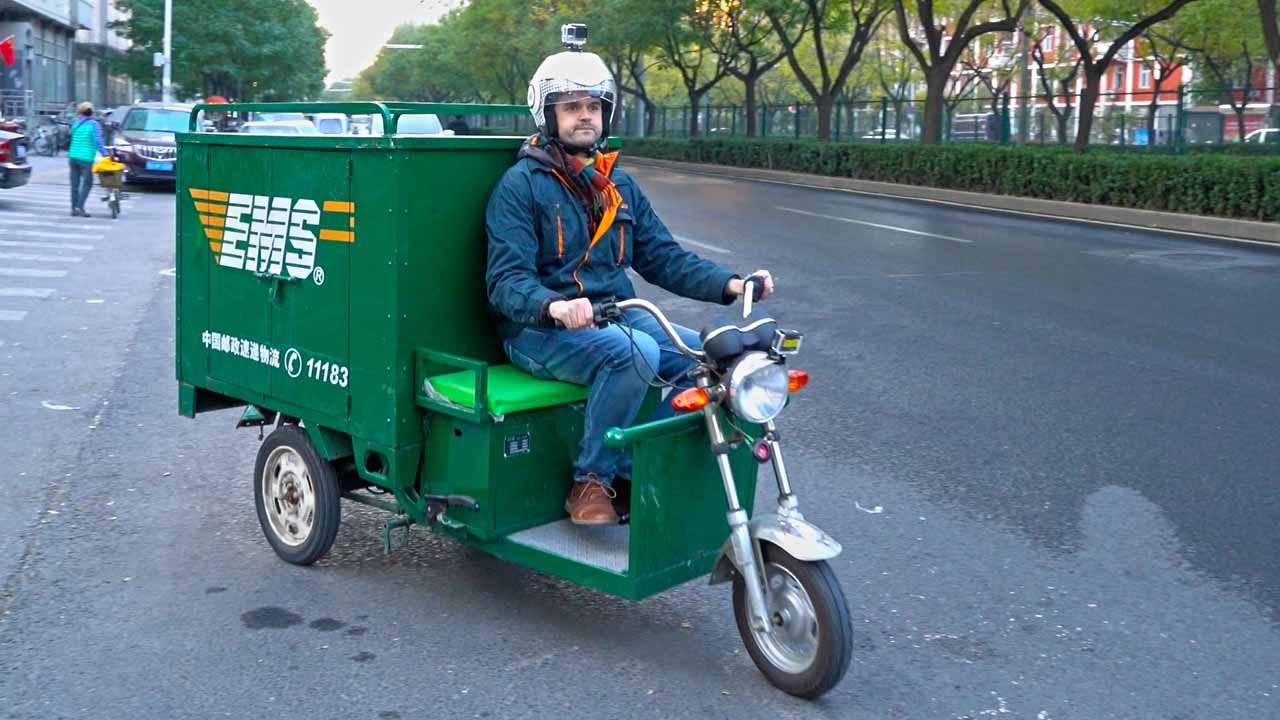
The Singles' Day shopping extravaganza is an annual phenomenon in China, and it wouldn’t be complete without the barrage of news reports that excitedly boast of billions of yuan in revenues, and hundreds of millions of purchases made across the country in the space of a few hours.
The numbers are impressive – 2016 saw 30 billion parcels delivered in China – but what do they mean for the couriers behind the scenes of China’s enormous e-commerce industry?
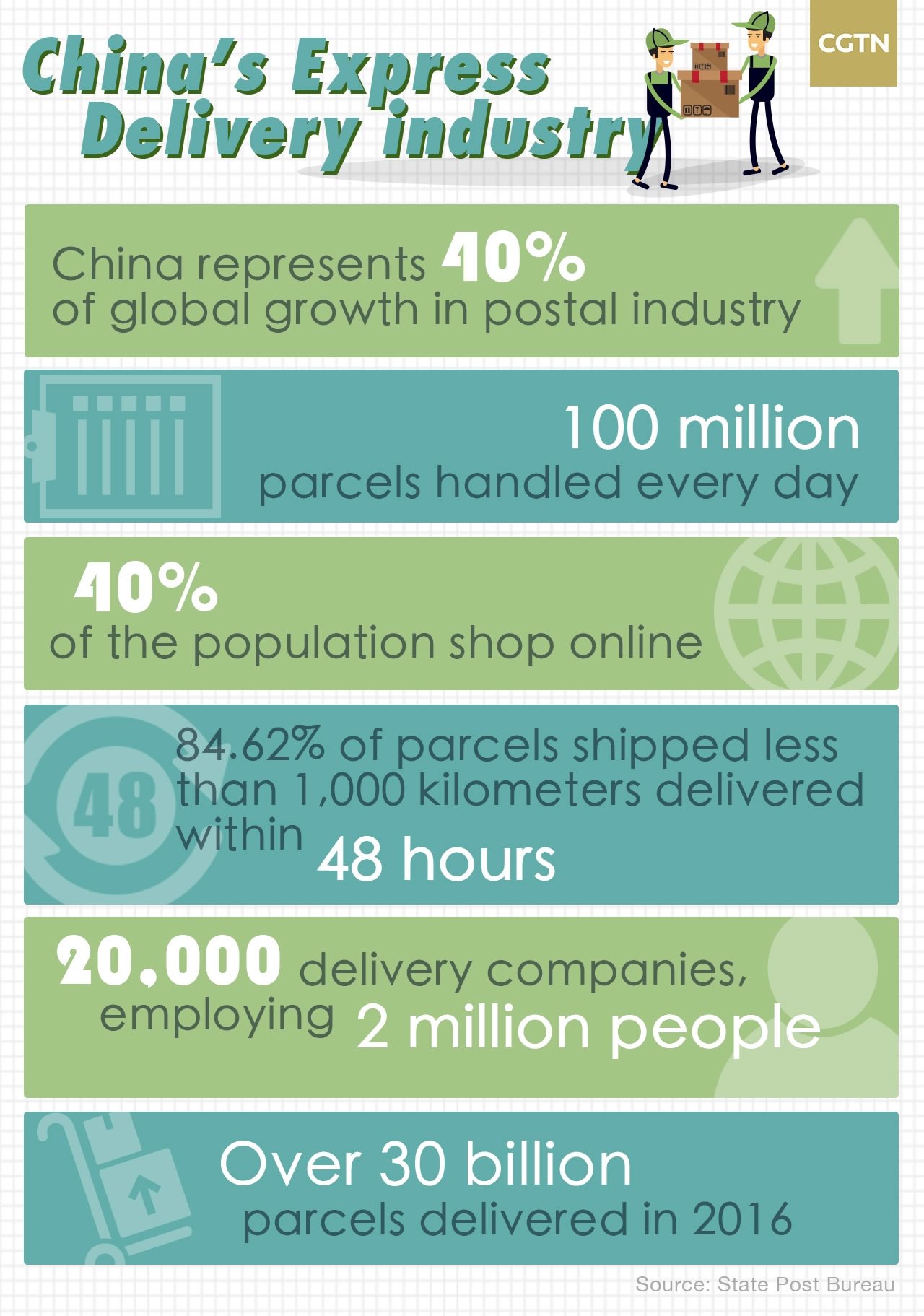
CGTN Photo
CGTN Photo
To get a taste of the tough work of these workers, I spent a day experiencing the high-pressure express delivery industry in Beijing. I’m a regular online shopper, and I’m constantly amazed at how quickly my latest parcel has made its way from the other side of the country to my doorstep, so I was thrilled to be given the chance to uncover the real world of express delivery.
Not an easy ride
A couple of days before filming began, I received a message from a colleague – “do you know how to drive an electric tricycle?” This was when I knew that I was really going to be thrown into the deep end.
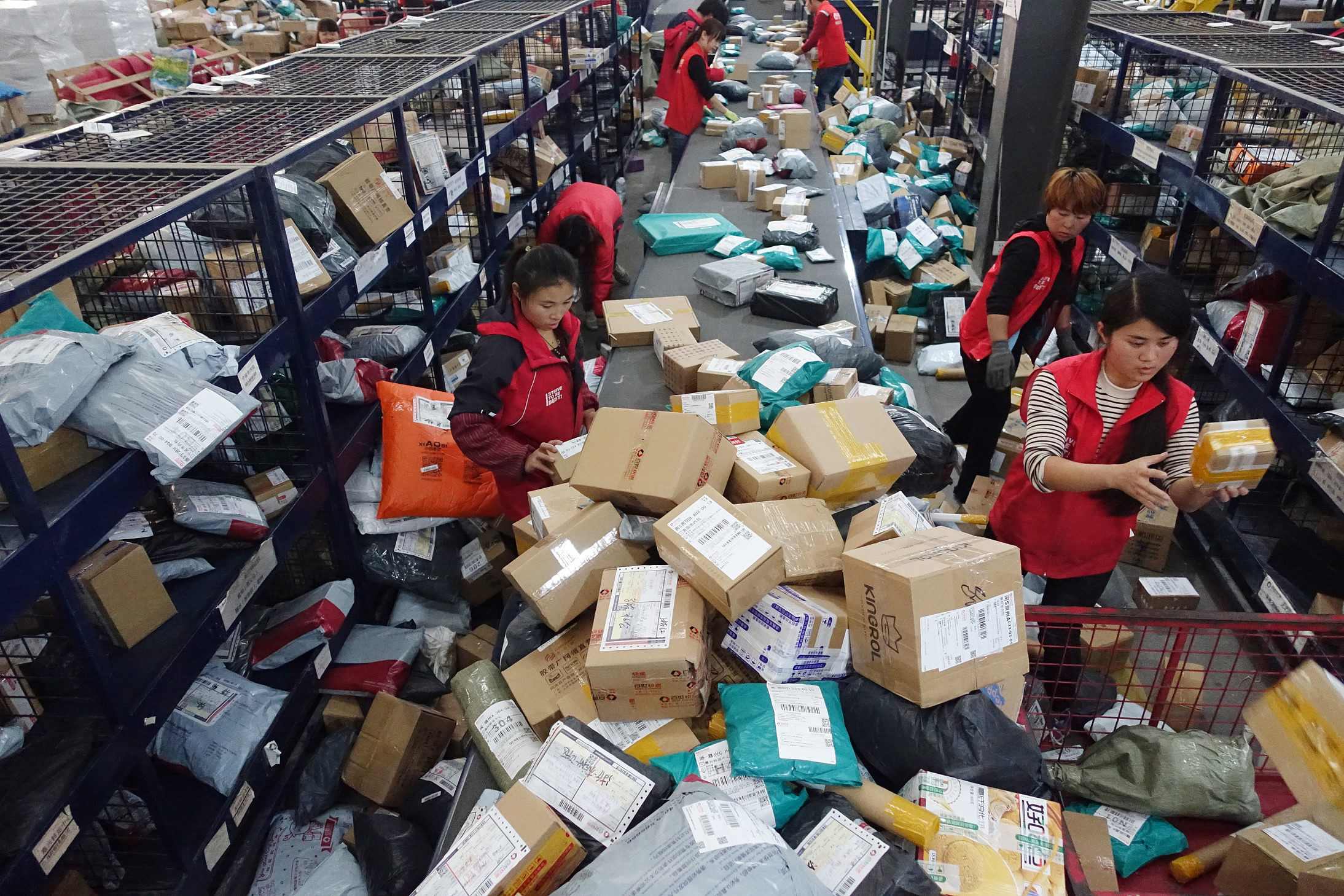
Sorting through parcels in a distribution center in Fuyang, Anhui Province, November 9, 2017. /VCG Photo
Sorting through parcels in a distribution center in Fuyang, Anhui Province, November 9, 2017. /VCG Photo
In any major Chinese city, droves of kuaidi (literally meaning “express delivery”) couriers are on every street, from dawn till dusk. In fact, they’ve become so ubiquitous that you barely notice them anymore, unless their delivery tricycle is blocking a path or cycle lane, or they suddenly jump in your elevator, out of breath as they rush to get a package to their next customer.
We arrived at the parcel depot on a crisp November morning at 6:30 a.m. Staff were already hurriedly sorting through piles of parcels and letters, while more and more packages were unloaded from a pair of trucks on the forecourt outside.
The parcels soon piled up to the ceiling, and the depot was a hive of activity – I noticed how each worker went about their work silently, efficiently working as part of a complicated system that involved sorting parcels, scanning barcodes into a big data system, and loading up the legions of delivery tricycles raring to go outside.
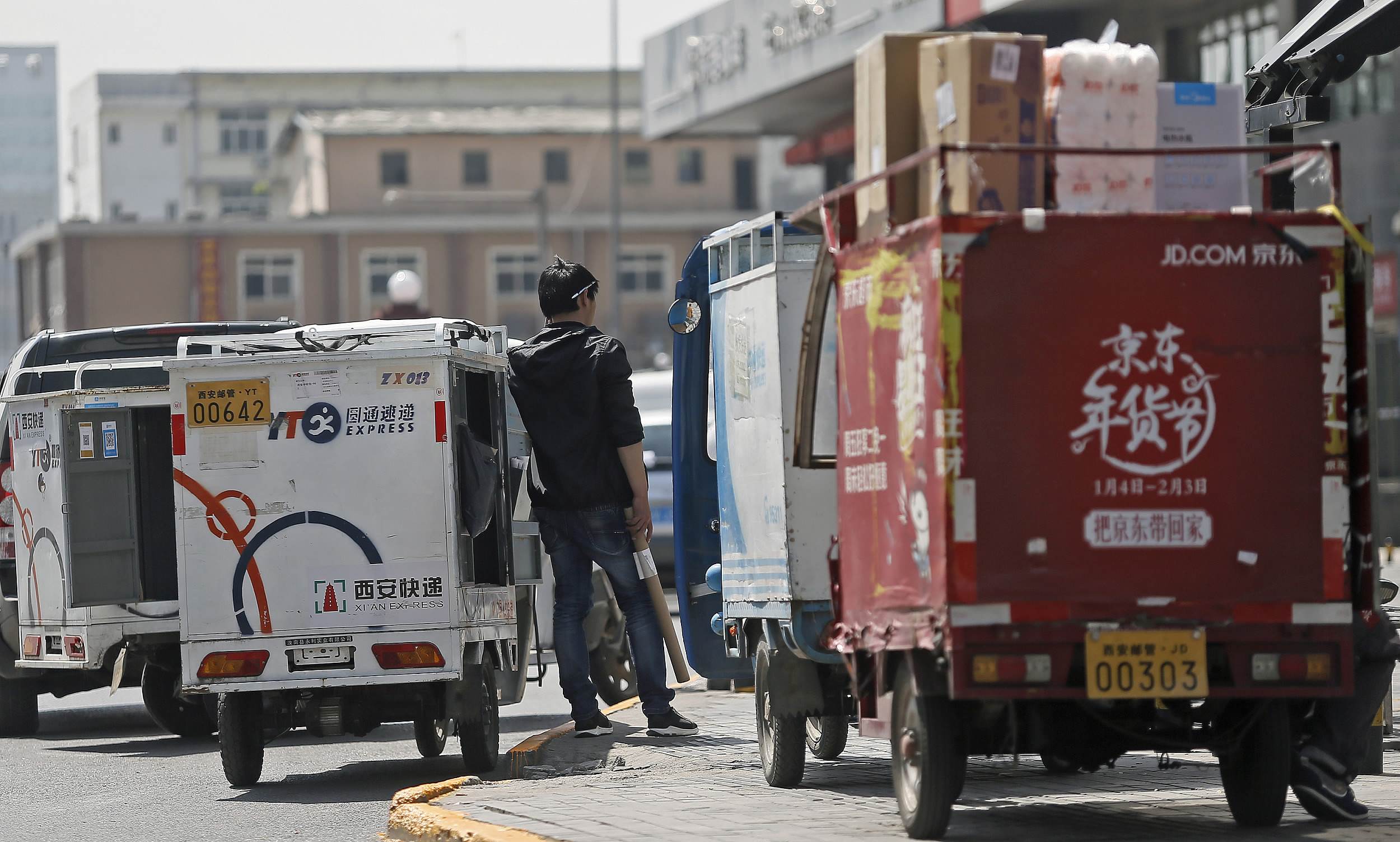
Courier three-wheelers in Xi'an, after Singles' Day in November 2016. /VCG Photo
Courier three-wheelers in Xi'an, after Singles' Day in November 2016. /VCG Photo
The depot’s manager, Mr. Xu, was a young friendly face who handed me my uniform, the keys to my tricycle and the parcels that were going to be my responsibility for the day. Ranging from boxes of apples, bags of clothing to a heavy dishwasher, I could tell that Xu was looking forward to putting me through my paces.
We loaded up the tricycle, and after a few teething problems (I was a bit generous with the throttle at first) I got to grips with the three-wheeler. Xu explained to me that he used to drive a van to deliver parcels, but the traffic and narrow lanes of the old city meant the narrow tricycles were better-suited for speeding across the capital.
As we headed to our first destination, passers-by waved, gave us the thumbs up and even broke out into laughter – I guess it’s not every day that you see a foreigner delivering parcels in Beijing.
‘Follow the rules and take it easy’
Anyone who has ever cycled in Beijing will know to look out for kuaidi drivers in the bike lanes, but Xu told me he’s never had an accident, impressing on me the importance of following traffic regulations. This was common advice I heard from fellow delivery drivers during the day – in this job, just follow the rules, take things easy and you’ll be fine.
If you get a parcel delivered in China the kuaidi courier will give you a call before taking it to your front door, to check if you’re home or not. In offices across the country, meetings and conversations are frequently interrupted as workers whisper into their phones “just leave it by my front door.”
I myself am sometimes guilty of not answering the phone when I know it’s a courier, especially when my lazy Saturday morning is interrupted by “喂?我是送快递的,家里有人吗?” (“Hey, I have your package, is anybody at home?”)
But being on the other end of the line and having call after call ignored is really frustrating for the under-pressure kuaidi couriers. Failing to deliver a parcel means having to try again the next day, and that means more pressure on your workload.
Hungry, tiring work
Being an inexperienced, out-of-my-depth kuaidi courier involves a lot of running around, looking lost and confused, and – if you’re too slow – missed lunches and rumbling hunger. I spoke to two couriers who had been on the road since early morning, and by 2:00 p.m. they still hadn’t eaten, and couldn’t grab any food until their work was done.
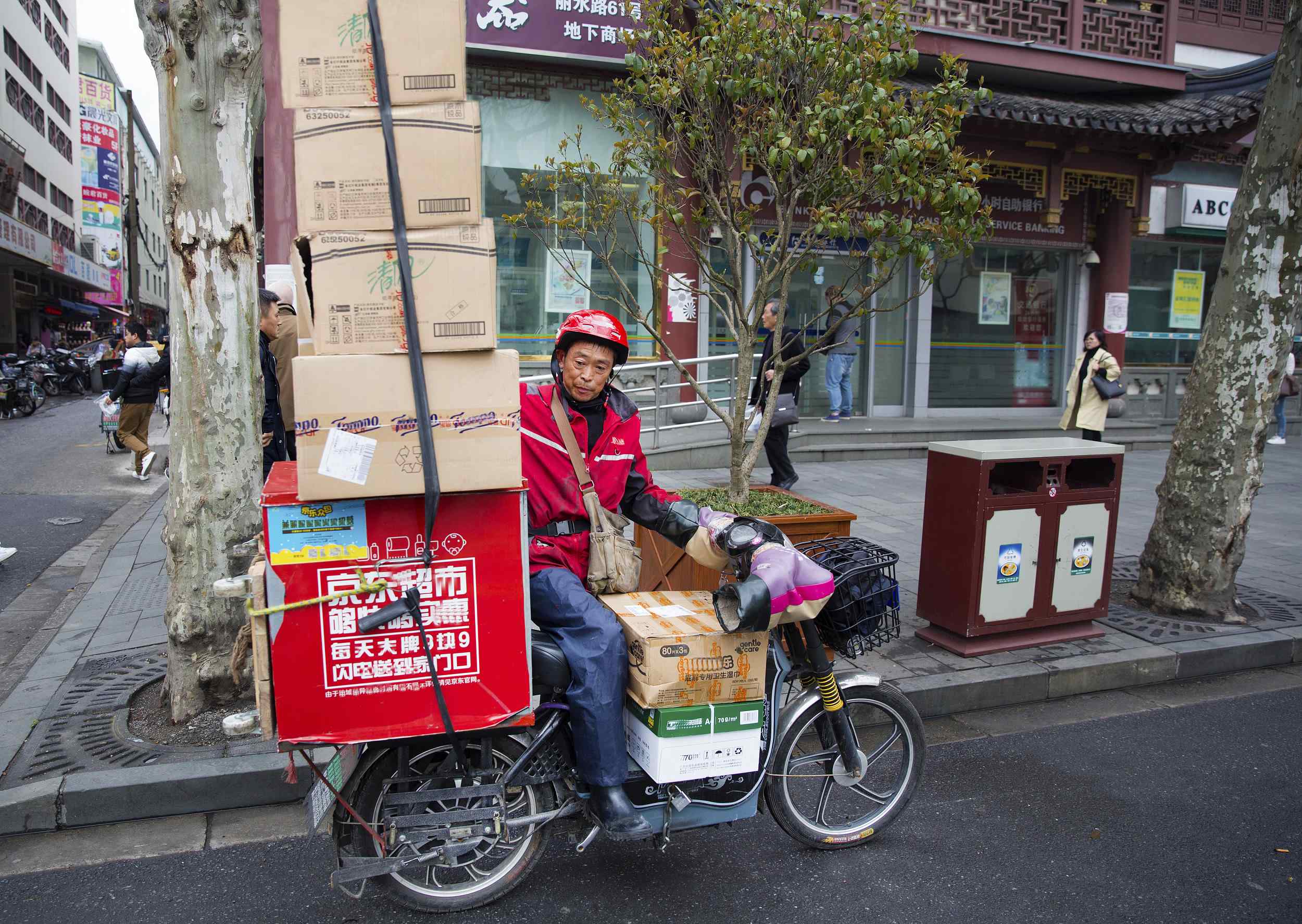
Not an easy job... /VCG Photo
Not an easy job... /VCG Photo
It’s both a physically and mentally difficult job. My mentor Xu seems to have a photographic memory for every package in his trunk – it’s as if he can visualize a map of the city down to every building – he knows the best place to park the tricycle, where to go first and how to arrange his parcels, making his work as efficient as possible.
For this year’s Singles' Day, the volume of sales and parcels delivered is set to comfortably surpass last year’s record amount. As you sit at home or ride the subway, filling your virtual shopping basket with bargains galore ahead of the biggest e-commerce event anywhere in the world, spare a thought for the men and women who will be doing their best to get those goods to you on time.

SITEMAP
Copyright © 2018 CGTN. Beijing ICP prepared NO.16065310-3
Copyright © 2018 CGTN. Beijing ICP prepared NO.16065310-3